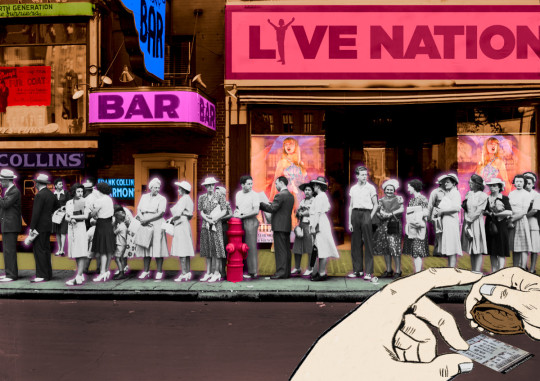#adjustable rates
Explore tagged Tumblr posts
Text
How To Qualify Professional Mortgage Loan Programs In 2024?
Professional mortgage loans are designed for young professionals like you, even if you have a lot of debt compared to your income (DTI) or need a larger loan for the house (LTV). These loans help doctors, lawyers, and other high-earning professionals achieve their dream of homeownership. These programs understand you might have high student loans but also have a bright future with a good salary.…

View On WordPress
#adjustable rates#application processes#attorney mortgage loan#bbva mortgages#bbva physician loan#conventional loan#cpa mortgage#cpa mortgage loan#credit union#fixed rate#high earning#home loan for lawyers#home loan for professionals#home loans for lawyers#home loans for physicians#home loans for professionals#Interest rates#loan amount#loan application#loan processor#loan term#loans processing#medical professional loans#medical professional mortgage#medical professional mortgage loan#medical professional mortgage loan programs#medical professionals#monthly payments#mortgage for professionals#mortgage lenders
0 notes
Text



epiaphany's 911 advent calendar - 20/24
#911#911 abc#911edit#eddie diaz#christopher diaz#eddiediazedit#christopherdiazedit#the diaz boys#the diaz family#5x10#adventcalendar24#christmas tag#this one i actually made today lol bc i discovered i only had 3 in my queue and there are 5 days left -.-#these are the first gifs where i adjusted the frame rate in ps instead of slowing them down in fcpx which meant that i was so focused#on that that i didn't even notice the text that probably should've been blurred out#but i was just so done with making gifs i couldn't be bothered okay#my gifsets#911gifs#no.58#91140
407 notes
·
View notes
Photo

I’m very passionate about the price of the Costco hotdog
#my art#graphic design#artists on tumblr#im thinking about putting this on a t shirt or tote bag?#also fun fact costco is so committed to the hotdog being 1.50 that its 1.50 in canada as well#the price hasnt been adjusted for the exchange rate#so technically its even CHEAPER here which is insane#anyways i love u costco hot dog. beloved
3K notes
·
View notes
Text


Jeff Satur - Ride or Die mv
#jeff satur#ride or die#i'm almost tempted to redo these with teeny frame rate adjustments#but only to like 2 segments#it if wouldn't mean regrabbing every frame...#yeah no actually this is good enough
196 notes
·
View notes
Text
Ticketmaster jacks us for billions so it can pocket millions

NEXT WEEKEND (June 7–9), I'm in AMHERST, NEW YORK to keynote the 25th Annual Media Ecology Association Convention and accept the Neil Postman Award for Career Achievement in Public Intellectual Activity.

Corruption is a system of concentrated gains and diffused costs: cheaters make a lot of money, and their victims each lose a little. The cheater has a much larger pool of money to spend on keeping the scam going, and the victims need to pay again to fight the cheater.
Actually, it's worse. The victim pays once when they are cheated, then, they pay a second time (in time and/or money) when they fight back against the cheater.
But in order to fight back effectively, the victims need to band together – it doesn't make sense for one victim to pony up to counter the cheater, because the cheater stole from a lot of people and can therefore spend far more than the victim lost and still come out ahead.
This is the third time the victim pays: they pay the "collective action" tax of locating other victims, agreeing to a common strategy for fighting back, and then coordinating with all those co-victims to keep the campaign up.
But actually, it's even worse. Because most corruption isn't just dishonest, it's incredibly wasteful. Corruption involves stealing ten dollars from you to make a dime for the cheater. The polluter who gives you cancer rather than cleaning up their industrial process costs you millions in medical bills – and maybe costs your family the lifelong trauma and expense of living with your death. They pocket an infinitesimal fraction of those costs. The rest is just wasted. They're setting your house on fire to spare themselves the cost of a match to light their cigar.
This is yet another way in which the deck is stacked in favor of corruption. A victim of corruption is placed in a condition of precarity and misery from which is it difficult to marshal a counteroffensive. The cheater, meanwhile, is made stronger and more comfortable by their corrupt activities. Immiserated victims must undertake the hard, ongoing work of acting together to be effective against the cheater. The cheater answers only to themself, avoiding the collective action costs that the victims pay every time they seek to act.
All of this is why we have governments. A government is (said to be) a democratically accountable way to meet the concentrated power of the corrupt with the concentrated power of the victims of corruption. Governments are many things, but they are especially a way of solving the collective action problem of enforcing the rules against cheaters. This is partially in service to justice – no one likes to be cheated, and a society of rampant and routine cheating is unstable and prone to collapse.
But it's also a matter of efficiency. While it makes a certain kind of selfish sense for the cheater to liquidate our dollar to make their penny, from a societal perspective, it's a catastrophe. Letting Wall Street slumlords corner regional markets in single family dwellings makes large amounts of money for their investors, but it costs those cities unimaginable amounts in public services as their housing stock decays, homelessness spikes, and schools and public services crumble for want of local taxes.
The paltry sums that Flint's creditors extracted by insisting on switching to a chlorinated water-supply that leeched lead out of the city's water infrastructure are crumbs compared to the vast, lifelong costs of giving an all the children in a city lead poisoning, to say nothing of the costs to the city as a city nor forever tainted by this unspeakably evil crime.
This is why inequality – and its handmaiden, monopoly – is so dangerous. The more concentrated private wealth becomes, the harder it is for the state to police, and the more likely it is that this private wealth will corrupt our officials. We see this all around us – for example, when Supreme Court justices receive lavish gifts from billionaires whom they later rule in favor of:
https://pluralistic.net/2023/04/06/clarence-thomas/#harlan-crow
Through the neoliberal era – the past forty years of billionaire-friendly Reaganomics – we've seen increasing concentration in wealth, coupled to increasing collusion between the wealthy and the government to protect the corrupt against the public. Think of the IRS's long decay, in which it turned a blind eye to increasingly blatant tax evasion by the ultra-wealthy, while training its fire on working people who fudge a few bucks on their returns:
https://pluralistic.net/2022/04/13/taxes-are-for-the-little-people/#leona-helmsley-2022
Likewise, think of the governmental obsession with "welfare cheats," no matter what the cost to families who are kicked off food stamps and Medicaid:
https://armandalegshow.com/episode/medicaid-enrollment/
All this in the midst of a corporate crime-wave that is not only unpunished, it's utterly unremarked-upon:
https://pluralistic.net/2021/12/07/solar-panel-for-a-sex-machine/#a-single-proposition
This emphasis on benefits cheating and indifference to corporate crime really highlights the drag that corruption places on a society's efficiency. Even if you believe that there's a lot of welfare fraud (there isn't!), the dollar in "undeserved" food stamps spent by a cheater costs society…a dollar. Meanwhile the dollar that a corporate criminal makes by skimping on workplace safety costs society thousands of dollars to care for the worker who is then maimed on the job.
This is very easy to see in the world of corporate environmental crime. The "social cost of carbon" measures the total cost of pollution: the injuries caused by marinating in fossil fuel extraction, processing and combustion byproducts; as well as the loss of life and property from climate events. These costs are blistering, so high that every MWh of renewable power we bring online saves us $100 in social carbon costs:
https://pluralistic.net/2024/05/30/posiwid/#social-cost-of-carbon
Governments that sleep on corporate crime are objectively governing badly. That's why the antitrust failures of every US presidential administration from Carter to Trump are so damning: they set the stage for later corruption that would not only be carried out on a larger scale than smaller firms could accomplish, but also for those large firms to corrupt the political process.
This is the Ticketmaster story. The superpredator that is today's Ticketmaster is the end-point of a series of ever-more corrupt mergers, waved through by every-more pliable presidential administrations. It was bad enough when Bush I allowed Ticketmaster to gobble up Ticketron in 1990. After all, the company had already proven itself to be a cesspit of corrupt, bullying activity.
The Ticketron acquisition kicked off a two-decade-long corporate crime-spree that produced a mountain of evidence proving Ticketmaster's nature as an inherently corrupt enterprise that acquired power for the purpose of abusing that power, at the expense of creative workers, the public, and the owners of venues:
https://www.rollingstone.com/music/music-news/pearl-jam-taking-on-ticketmaster-67440/
Despite this, the Obama administration waved through an acquisition that was obviously far more dangerous that the Ticketron caper: the 2010 merger between Ticketmaster and the concert promoter Live Nation:
https://en.wikipedia.org/wiki/Live_Nation_Entertainment#History
After a decade and a half of vertical monopoly power – Ticketmaster/Live Nation controlling ticketing, promotion and venues – the company has grown from a dangerous octopus with its tentacles twined around the industry into a kraken that is strangling every kind of live event and everyone who earns a living from them. This has produced an ever-more obvious string of scandals, most notably the company's assault on Swifties:
https://pluralistic.net/2022/11/20/anything-that-cant-go-on-forever-will-eventually-stop/
A combination of mounting public outrage (with Swifties at the vanguard) and the Biden administration's generational enthusiasm for smashing corporate power has led, at last, to a reckoning with the Ticketmaster kraken:
https://pluralistic.net/2024/04/30/nix-fix-the-tix/#something-must-be-done-there-we-did-something
Ticketmaster is a famously opaque organization. When Rebecca Giblin and I were working on Chokepoint Capitalism, our book on monopoly and creative labor markets, we were able to speak on the record to insiders from every part of the industry, except live performance:
https://chokepointcapitalism.com/
As soon as we raised Ticketmaster/Live Nation with club owners and other events industry insiders, they'd go pale and quiet and tell us that they didn't feel comfortable staying on the record. TM/LN has a well-deserved mafia-style reputation for savage retaliation against snitches.
With the DOJ Antitrust Division chasing Ticketmaster through the courts, we're starting to get a rare, on-the-record glimpse of TM/LN's operations, as its internal documents find their pay into court records. In response Ticketmaster's spokesliars have embarked on an epic spin campaign, to "contextualize" these damning numbers and paint the company as a weak, low-margin business that has been unfairly set-upon by the bullies at the DOJ.
In his BIG newsletter, Matt Stoller offers a spectacular, must-read breakdown of these documents and the ensuing spin:
https://www.thebignewsletter.com/p/is-ticketmaster-telling-the-truth
Stoller starts with Ticketmaster's insistence that it is barely profitable. Though this is true on paper, the numbers just don't add up. For one thing, anyone who's bought a ticket can see, printed on its face, TM's junk fees: "a 'service fee' without any obvious service [and] a 'convenience fee' that is anything but convenient."
Far more damning is a comparison between the price of a Ticketmaster ticket in the US vs the EU. The EU has legally mandated competitive ticketing, and the tickets there are far cheaper. A US ticket to see Taylor Swift will run you $2,600 – the same ticket costs $340 in the EU. As Stoller writes:
An American could fly to Paris, spend a few nights at a nice hotel, see a Taylor Swift concert, and fly back, for less than it costs to see that same show in the U.S.
How to make sense of this contradiction? How can Ticketmaster show such a low profit margin on its books but somehow end up costing event-goers such an absurd premium?
Start with the fact that Ticketmaster has three businesses, not just one. They sell tickets, but they also promote concerts (that is, front the money for personnel, travel and marketing), and they also own a bunch of the largest and most profitable venues in the country.
This allows them to play a shell-game that's very similar to (and possibly not actually different from) money-laundering, where money is shuffled between entities in order to shield it from creditors, suppliers or tax agents:
https://www.thebignewsletter.com/p/explosive-new-documents-unearthed
But this presents a problem for Ticketmaster. They're a publicly traded company and their investors demand high returns. And unlike performers or venue owners, investors have power over Ticketmaster management. Keeping "margin per ticket" number as low as possible lets Ticketmaster minimize the revenue it has to share with the people who actually do the work and invest the capital in live performances. But for investors, they need to show another number, one that's as high as possible, to keep the investors happy.
That number is "Adjusted Operating Income" or AOI. While gross margins are the difference between the face value of a ticket and the sum remitted to the venue and the performer, AOI factors in all the other revenue TM/LN books from that ticket, like kickbacks. TM/LN's AOI is very healthy: it's 37% on tickets and 61% on promotions.
Those sums delight TM/LN's investors, and they express their joy through lavish executive compensation packages. CEO Michael Rapino is America's fifth-highest paid CEO, at $139m/year (that's eight times the Fortune 500 average). His sidekick Joe Berchtold is America's highest paid CFO, at $54m. The total AOI for TM/LN is $732m/year – and 19% of that is being paid to two of its execs.
But LN/TM has a third line of business: operating venues. The AOI for these venues is just 1.7%. If this were a normal, cutthroat business, you'd expect those same return-focused investors to insist on their handsomely compensated execs selling off that low-margin turkey. But nevertheless, TM/LN keeps those venues on its books.
When those execs talk to the public, they use the poor profit margins of ticketing and the poor AOI on venues to plead poverty: "how can we be a monopoly when we're barely scraping by?"
But when they talk to the investors who decide whether to pay them 800% of the S&P500 average, they are more forthcoming.
Keeping the margins low on tickets – and making up the money with kickbacks and other corrupt payments – means that potential rival ticketing firms can't afford to get into the business. Without the venue and promotion business, those rivals wouldn't be able to command kickbacks. They'd have to subsist on the rock-bottom margins that are competitive with Ticketmaster.
Likewise those venues: ownership of key venues lets Ticketmaster/Live Nation force out credible rivals in important markets, and keep new ones from emerging, because again, they'd have to make a living on that paltry 1.7% AOI (or the even lower profit margins!).
As Joe Berchtold, the highest-paid CFO in America, told an analyst:
I don't think Concerts AOI per fan is a logical way to look at it. I think if you look at how we've talked about our business, we've talked about our business across the multiple pieces. So you have to look at it, what's the concerts plus sponsorship plus ticketing AOI per fan.
Berchtold is paid roughly $26,000/hour. Those words take roughly 25 seconds to utter, so that's a $7.20 explanation, but it contains a wealth of information – it's basically the DoJ's case in a nutshell.
But Stoller points out a curious fact that isn't captured here. Remember when I told you that TM/LN's NOI is $732m/year? What I didn't mention is the company's gross revenue: $16.7 billion.
When TM/LN talks about how shitty their business is, and therefore they can't be a monopoly, this is the trump card. How could a company creaming off a mere $732 million off $16.7 billion in gross revenue be a monopolist with "pricing power"?
This is where understanding corruption helps clarify our understanding and cut through the bullshit. Corruption is vastly wasteful. In order to extract $732m from $16.7b, TM/LN has to engage in a lot of wasteful and corrupt activities. They have to bribe other key players in the system, spend vast fortunes on lobbying, and generally do a lot of unproductive things with their money.
This is concentrated gains and diffuse losses. In order to command the highest salary of any American CFO, Berchtold has to cook up and maintain this process. In order to earn his $139m/year, Rapino has to play mafia don and keep everyone is his supply chain sufficiently terrorized or sufficiently greased to maintain omerta.
These two men take home a fifth of Ticketmaster's net income because they possess a rare and valuable skill. They are able to obfuscate a corrupt arrangement, enrobing it in layers of performative complexity, until the average musician, concertgoer, or lawmaker, can't understand it. Any attempt to unravel it will induce a deadly, soporific confusion. The investment industry term for his is MEGO (My Eyes Glaze Over), the weaponization of complexity. A skilled MEGO artist can convince you that the pile of shit they're peddling is so large that there must be a pony under it somewhere.
Here's Stoller, de-MEGOfying the TM/LN story:
Live Nation has a giant capital intensive unprofitable division of putting on concerts, from which it skims for its real cash flow. But this leverage among different subsidiaries means that it has an incentive to push up the cost of concerts overall, not just for its own profit. This incentive operates in two different ways. One, since ticket fees are based on the price of a ticket, Live Nation seeks higher prices for tickets so it can move more cash to its Ticketmaster subsidiary. And two, since Live Nation itself gets rebates by overpaying for venues, it has the incentive to push up the cost of shows. No one can undercut Live Nation, as it’s a monopoly.
You might think that this is a lot of mental energy to expend on understanding live performances. If you're not trying to see Taylor Swift, does any of this matter?
It assuredly does. Understanding how Ticketmaster's shell-game works is critical to understanding the similar shell-games played by many other kinds of monopolists, who have wrapped their tentacles around all the other parts of our lives. As David Dayen and Lindsay Owens write for The American Prospect, the companies that avoided monopoly prosecution by ripping off suppliers have bled those suppliers dry, and now they're coming for their customers:
https://prospect.org/economy/2024-06-03-age-of-recoupment/
From groceries to plane tickets, rent to cab rides, Amazon to Ticketmaster, we are living through the "Age of Recoupment," when the long con of lowering prices to secure monopolies flips enters it final stage: greedflating the shit out of customers, and using the monopolist's power over regulators to avoid consequences.
Today, everywhere consumers turn, whether they are shopping for groceries at the local Kroger or for plane tickets online, they are being gouged. Landlords are quietly utilizing new software to band together and raise rents. Uber has been accused of raising the price of rides when a customer’s phone battery is drained. Ticketmaster layers on additional fees as you move through the process of securing seats to your favorite artist’s upcoming show. Amazon’s secret pricing algorithm, code-named “Project Nessie,” was designed to identify products where it could raise prices, on the expectation that competitors would follow suit. Companies are forcing you into monthly subscriptions for a tube of toothpaste. Banks have crept up the price of credit, so customers who cannot afford price-gouging in their everyday transactions get a second round of price-gouging when they put purchases on credit. Expedia is using demographic and purchase history data to set hotel pricing for an audience of one: you.
When these companies end up in front of angry attorneys general, DOJ lawyers, or an FTC investigation, they'll use the Ticketmaster/Live Nation playbook to try and wriggle off the hook. They'll point to some barely-profitable (or money-losing) part of their business and say, "How could a monopolist possibly be running a business this shitty?"
If the DOJ makes its case against Ticketmaster, it will set a precedent, both in court and in policy circles, for understanding how a monopolist's corruption works. Monopolists aren't always businesses with gigantic margins. Like other criminals, their corruption can produce spectacular wealth and spectacular waste at the same time.

If you'd like an essay-formatted version of this post to read or share, here's a link to it on pluralistic.net, my surveillance-free, ad-free, tracker-free blog:
https://pluralistic.net/2024/06/03/aoi-aoi-oh/#concentrated-gains-vast-diffused-losses
#pluralistic#Michael Rapino#matt stoller#monopoly#antitrust#trustbusting#monopolism#poormouthing#credit mobilier#corruption#kickbacks#shell game#financial engineering#flywheels#live nation#ticketmaster#take rate#Joe Berchtold#guillotine watch#aoi#accounting tricks#mego#adjusted operating income
220 notes
·
View notes
Note
Very excited for your next story! What platform will you be posting it on? Can’t wait!
Thanks so much! Webtoon Canvas will be the main place I post since "And Another Lovely Day" is scrolling format, but I'd like to reformat it a bit so I can give the comic its own Tumblr account (like I did with @flowerpot-comic, though totally changing it to page format would probably be impossible ha ha)
I'd be open to mirror-posting it elsewhere too!
#ask#and another lovely day#i'd like to have at least one mirror posting site from the start bc wt is so touch-and-go with their rating system...#each ep is split into smaller sections (like super secret but not 4 komas)#so i think posting each section in a post wouldn't be too overwhelming on tumblr with some adjustments?
61 notes
·
View notes
Text


character turnarounds for orbit n zeph i made a few months ago, with a little bit more fleshed out info about them
#i adjusted their ages and gave them birthdays!#orbit#zeph#my ocs#still dont have a solid name for ‘their series’#every name i come up with has been used by DC already so it’d be hard to search LOL#it would definitely be rated older teen or adult i suppose bc of drug usage (im unsure about the standard around that)#also this is when i decided zeph would be Snail#look at that guy#art#also im so sorry tumblr OBLITERATED the quality so it might be hard to read :(
303 notes
·
View notes
Text

serious comm sheet is live!
✦ bust/half body portraits with simple monochrome background .psd starting at 26 USD per subject.
✦ bust + full body transparent .psd set starting at 40 USD per character.
✧ please contact with references via DM or email at [email protected]
✧ payment mainly via paypal | ko-fi | gcash
✦ carrd
✦ art tag | wip tag
#hwshln#commissions#prices adjusted slightly bc fees and exchange rates are giving me grief#PWYW sketch comms will also still be alive#graphic design was my major not my passion#sorry if the format is crazy I'm hoping this doesn't look as bad on mobile as my art usually does lmao#pleaseeee give me your blorbos
13 notes
·
View notes
Text
for all the Minecraft veterans that have been around since the early days
please tell me what you voted and what country you're from, I wonder if this was just a czechoslovak thing or not
#poll#minecraft#I remember watching this group of czech youtubers when minecraft was still very new#and everyone was always scared of the desert#p sure it was because of the increased mob spawn rate and the presence of husks?#either way I remember getting back into mc in like 2019 and people were chill with deserts and I had this like primal fear in me still#it took me a while to adjust to the fact that deserts are not scary
21 notes
·
View notes
Text
So
Um
How 'bout this Hazbin Hotel show?


Let's just say someone close to me hooked me up with a viewing~
I got one more episode to watch
#I predicted who was gonna be my favorite and I was right this time#I'll give you three guesses and tell me why you know it's Alastor#Actually most of the characters are pretty cool#It could have done with more episodes for the first season but I get it the show business these days are whack#I need to adjust my “2 Season Rule” for rating a show but the idea is that you wait 2 seasons to get a good report for a show#also the music slaps#And the color pallets are pretty sick#The characters are easy for me to track on screen ngl
20 notes
·
View notes
Text
Fuck it I'm buying one more cane to see if it'll fit my very specific needs of wanting one cane with an offset handle, be collapsible so I can attach it to my belt when I don't need it, while also not collapsing small enough that it sacrifices the extra height it can provide for my small-ass legs if I use it to hook something out of my reach, while also-also being short enough that I can use it period
#goopins talks#ambulatory cane user#cane user#cpunk#i'm at a 50% success rate of having canes that can actually adjust down to my height#why must i be so short
9 notes
·
View notes
Text
I spent much of the day with my parents, who I'm visiting after the requisite post-COVID time (I still have a cough and am easily tired, but neither is nearly as bad as a couple of days ago). It was really fun—we talked a lot, I got to see the family pets, my dad and I played one of my favorite card games (Neolithic; it's simple but fun), and then we all ended up playing City of Heroes, which is officially legal again (not that we were playing for years before the official license or anything >_>). We're currently doing an experiment to see if it's even possible to get to level 50 without ever leaving my favorite region of the game (Praetoria).
(I like Praetoria in part because of the various urban aesthetics underpinned by horror, in part because Praetorian characters get actual choices and it's easier to imagine they have real personalities and stories, and in part because it's a sort of mirrorverse AU of the main game where superheroes aren't really a concept. I don't especially care for superheroes despite most of the game being all about them, and mostly like the game for mechanics and costuming options, so a story-centric customizable character arc in a dystopia zone where people with superpowers are understood in wildly different terms than the rest of the game is ideal. Nobody else seems to much care for it; sometimes I'm the only person who seems to be in Nova Praetoria at all and my mother doesn't much like it, but she volunteered to join the experiment, lol.)
We were also waxing nostalgic about the good old days when we used to play Might and Magic VII together, and I was like... you know it's on GOG, yeah? You could just play it. I don't think it's expensive. So we looked and, good news, she actually already had it on GOG, but bad news, it wasn't working on her new laptop.
She went to bed and after about half an hour of finagling, I figured out what was wrong and got it working again. Arcomage is in our future once more :D
#and i uninstalled some crap she was trying to figure out how to get rid of! now her hard drive isn't /quite/ as overwhelmed#and i got her ublock origin because ... good lord. how do people live this way#turned out mm7 needed both a patch and some compatability adjustments... windows was sure it should be in windows 95 mode#even though it's from 1999 and i'm pretty sure was designed to work with later versions#at any rate the patch + run as administrator + remove full screen optimization + run in windows 8 mode got it working#anghraine babbles#deep blogging#anghraine's gaming#city of heroes#might and magic vii#family
12 notes
·
View notes
Text
now that i can give a more coherent update, the prognosis is basically that she will be in indefinite hospice treatment with symptomatic treatment where possible. the main concern is her platelet count, because her blood is unable to clot and so even a little bump could cause big problems for her. and then her appetite to ensure she keeps her weight on and strength up
we ended up at the kindest emergency vet we've ever been to and god i cannot even begin to get into how many traumatic experiences we've had with horrible emergency vets... but they were all amazing there and the main vet took so much time to break down what was going on and keep us informed on every single test they did and then afterward wrote up a super detailed report so we could go to a non-emergency vet to continue her meds if they improve her qol
and already a day and a half later she is seeing a huge improvement in her energy and comfort, like she's doing things i haven't seen since before the lethargy first set in which i am so beyond grateful i get to see again even if i know she isn't 'getting better'
#i don't know what they did to the bill but i will say they charged us about half of what i was bracing for#like i was fully prepared to be taking out an independent credit line for this#considering how extensive the testing was/past experience/etc#and i didn't have to do that#and i know this is something they went in and manually adjusted for us after finding out it was cancer/not treatable#because we were already very close to the final charge halfway through the tests#before meds/her chest xrays/more rounds of blood testing which were ofc all on emergency rates too
14 notes
·
View notes
Note
you've started the newsreader? whgat do you think so far?
I started it last night! Im 2 episodes deep right now but Im v intrigued. ofc everyone knows that sam is really good in this and yes yes he truly is, good enough to make the insane second-hand embarrassment of the first ep worth it (I did have to pause and pace during his first reading...good lord) but dude...No one prepared me for how good anna torv is. I loved her for already for her little 1.5 episodes of TLOU but she is showing so much range in this show. The way she oscillates from collected to crumbling meltdown is riveting, we should be talking abt her more me thinks.
#didn't realize how much lest*t was bringing down my sam approval rating until I saw him as a character im actually liking LOL#dale and helen are cute like awww shes like really into him when she was adjusting his hair that was too sweet#also i already love tim ik we all love tim#char.txt#answered
6 notes
·
View notes
Text
Post Election – Expect Tax Legislation
I. Introduction With clear Republican victories in the White House and the Senate, and a very slim majority for either side in the House of Representatives, we can expect tax legislation in the coming year. It is expected that the President elect will likely seek to enact his economic agenda as quickly as possible. While Congress may work for bipartisan support of any such legislation,…
#2017 Tax Cuts and Jobs Act#adjusted gross income#AGI#alternative minimum tax#base erosion and anti-abuse tax#BEAT#corporate rate#FDII#foreign derived intangible income#income tax#Internal Revenue Code#republican#Senate#Tax#TCJA#White House#Work Opportunity Tax Credit
3 notes
·
View notes
Text
@beatingheart-bride
A good question: Had any shops really caught her eye? So far, she'd felt so swept up in the excitement of just being in town, being out and about with Philippe, and the magic of the theater, that she really hadn't taken the time to really take a closer look at their surroundings, and so now she was taking the time to take it all in, and get a sort of lay of the land.
Together, they passed many different colorful storefronts: A general store offering the usual groceries, a music shop with many shining instruments and sheet music on display, a toy store with many brightly-painted, adorable little toys peering out the window...they even passed a jewelry shop, glittering necklaces and earrings mounted on the mannequin seated behind the glass.
(As Susannah peered curiously at the jewelry display, having never seen such beautiful gems so close before, she briefly caught a glimpse of her reflection, making it appear as she herself were wearing diamonds 'round her throat and on her ears. It was a quick but surreal sight, seeing herself wearing things she could never afford...)
Finally, her eyes landed on a tiny little bookshop, nestled between the toy store and a pharmacy. Not the biggest shop by any means, but it looked very cozy and inviting, and so she (shyly) suggested that be their next stop on their tour.
#((it's an adjustment; but i certainly hope it's a smooth one! and i'm glad you don't have to do it every day))#((giving myself an injection once a week would be bad enough; but doing it every day? no thank you!))#((and it is wild! something as minor as hair color playing a part in ones pain tolerance; it's so weird!))#((it's also slightly weird because i feel like i had a much higher pain tolerance as a little kid))#((whereas nowadays it feels like everything hurts a whole hell of a lot more than it did back then; oddly enough!))#((i don't know if there's really anything to that notion; if i really did have a better tolerance when i was little or what))#((but at any rate; i defidently feel the pain a lot more as an adult; so make of that what you will!))#((i don't remember where i learned about the correlation between red hair/pain; but it's always stuck with me anyhow!))#outofhatboxes#beatingheart-bride#V:Genderbent
5 notes
·
View notes